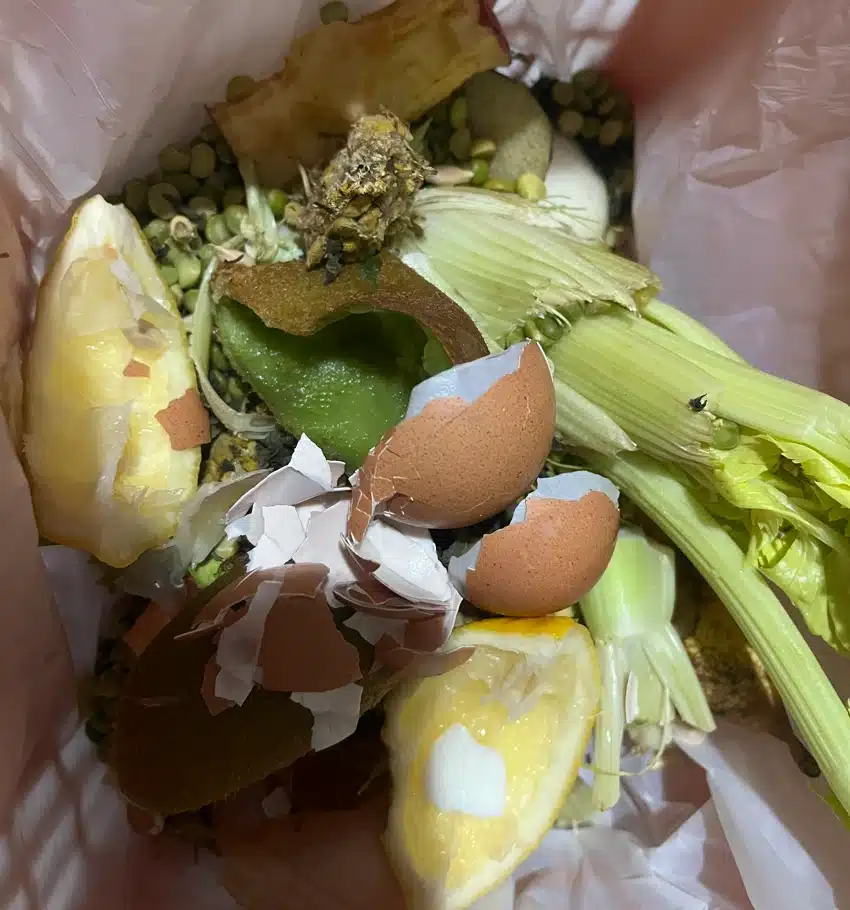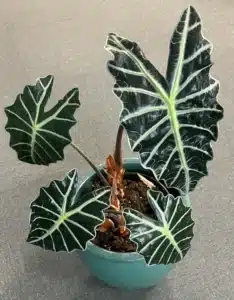

Japanese Compost - or Bokashi
If you use compost bins and bokashi powder for your kitchen scraps, you’ve got millions of little helpers! The “magic ingredient” in bokashi is natural effective microorganisms. Bokashi compost is a great fertilizer for your garden and plants.
Create Compost the Japanese Way - Bokashi
Bokashi originally comes from Japan and was developed by Tereou Higa and means “fermented organic material.” We call it compost – kitchen compost. At the same time, we’re excitedly talking about bokashi being an anaerobic process. If you’re not into traditional composting, the words anaerobic and compost together might make you scrunch your nose. But when we say we’re composting kitchen waste with bokashi, it’s a fancy way of saying we’re “turning food scraps into soil.” However, bokashi is not like regular composting; it’s not aerobic burning. It’s anaerobic fermentation, a process many know from pickled vegetables and winemaking.
The effective microorganisms breaks down proteins, starch, and other stuff in food waste, producing amino acids, organic acids, antioxidants, and more. To ensure the right byproducts in bokashi fermentation, we add a carefully selected group of microbes (EM) to the organic material (food waste) to be fermented. These microbes, through their metabolism, produce useful byproducts, creating an environment in the bin that suppresses the bacteria that make waste smell bad. Microbes producing useful byproducts strengthen each other in the bokashi bin, dominating and outcompeting the bacteria that, in traditional composting, create goo, gases, and bad smells, leading to frustration and wrinkled noses.
What exactly are Effective Microorganisms?
The most common way to introduce bokashi microbes is through a carrier infused with effective microorganisms. In our bokashi powder, wheat bran is the carrier. When making bokashi powder, we infuse wheat bran with the right type of effective microorganisms and sugarcane molasses through a fermentation process.
These microorganisms are natural, found in nature and our stomachs. They include lactic acid bacteria, photosynthetic bacteria, and yeast. The uniqueness of effective microorganisms and bokashi lies not in each bacterium’s individual properties but in their mix.
The Bokashi fermentation process
Bokashi fermentation process is triggered by bacteria that produces useful byproducts that become dominant and suppress the bacteria that would otherwise cause decay in the bokashi bin. Simplified, but this explanation sheds light on a couple of important everyday experiences for those doing bokashi:
Be cautious about putting a lot of already moldy or partially spoiled food at the top or bottom of the bin, especially at the beginning. It triggers a battle among the microbes, and if too many “bad” microbes are added, the bokashi microbes might not win. However, putting moldy bread or slightly bad fruit/vegetables in the middle of the bin is usually fine – the bokashi microbes have already multiplied and established themselves, dominating the local microorganism community after a while.
If you have a lot of protein-rich food waste (which is heavier material for the microbes to work with) in the bin, or you notice issues (typically unusual smells), you can help by adding a bit more bokashi powder. This supports the bokashi microbes in taking control.
How Bokashi Works in the Soil
But what happens to the microbes after the transformation, and the nutrient-rich bokashi soil is ready for duty in your garden? Essentially, the same thing: the microbes work their magic there too. Besides more nutrients and trace elements being returned to the soil with bokashi than with traditional composting, bokashi microbes continue optimizing the local microorganism community – also in the soil. So, using bokashi doesn’t introduce foreign (like Japanese) microorganisms into the soil. EM-1/bokashi consists of natural, familiar microbes in a mix that balances the micro-life in the soil, creating good synergies.
This is something worms and other diligent helpers in your garden soil absolutely love!



